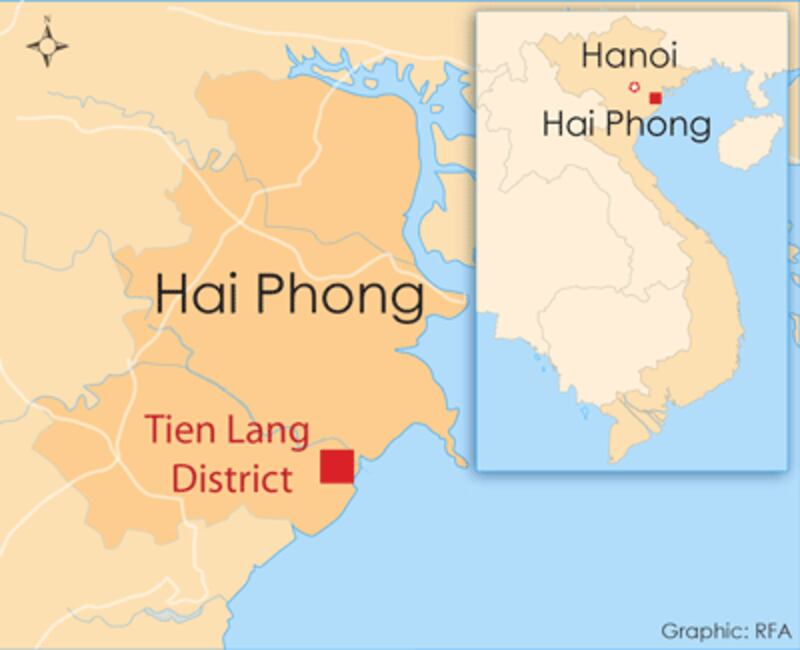A Vietnamese soldier-turned farmer's armed resistance against a move to evict him from state land has highlighted the plight of people grappling with forced government land takeovers in communist-ruled Vietnam.
Doan Van Vuon, 49, and his men had allegedly laid homemade land mines and fired improvised shotguns when security forces enforced the eviction in northern Vietnam on Jan. 5, seriously wounding four policemen and two soldiers.
Stunned by the resistance, the authorities sent reinforcements comprising about 100 police officers and soldiers wearing bulletproof vests and riot gear to repossess the 19-hectare (47-acre) leased swampland which Vuon had converted into a seafood farm.
Lawyer Tran Dinh Trien said the circumstances under which the government moved aggressively to repossess the land must be investigated, including whether the eviction was undertaken in the interest of the nation.
Vuon was given the land to farm under a 14-year lease but reports said the local government wanted it back to house an infrastructure project and to rent the remaining area at a higher cost.
“Firstly, what Vuon and his family did is really respectable," Trien said. "He was a soldier and he changed the wasteland into a shrimp and fish rearing area, making [food] products for society and creating jobs," he said.
"So the reason for the reclaim has to be examined ... People would think it’s for the interest of the nation and people ... But it’s pushing people to a dead end when the land is reclaimed with little compensation [and then given] for rent to other people or to businesses."
Attempted murder

Vuon, together with his two brothers and a nephew, has been arrested for attempted murder in the incident in Haiphong city's Tien Lang district.
Vietnam's Prime Minister Nguyen Tan Dung called for an investigation Tuesday into the incident.
State media have reported that Vuon was the mastermind behind the attack.
It said that he had long been at odds with authorities after his land lease came to an end and he stopped paying rent following a failure in negotiations on new terms.
The case has received wide attention by Vietnam's state-controlled media and Internet blogs, which have condemned the attack by the farmers while questioning whether authorities had the right to use force to eject the family from leased state land.
All land in Vietnam belongs to the state and people only have the right to use it. Land expropriation has been linked to several incidents of unrest in recent years.
Vuon’s wife, Nguyen Thi Thuong, alleged that security forces used brutal force when they stormed in to repossess the land without paying any compensation.
“They were beating us very hard. They used iron rods to hit our heads, our feet, they hit our stomach and kept on hitting my stomach," she said.
She said her family had spent many years and resources to develop the land.
"We spent so much money and labor and time [to build the seafood farm]. We had to loan billions of dong (tens of thousands of U.S. dollars). But the authorities came and took it back with nothing for compensation,“ she said.
Pleasant couple
Vuon's neighbors said he and his wife were a pleasant couple and got along with them well.
"A family has just fallen into pieces," one neighbor said.
Le Van Cuong, a former Vietnamese National Assembly Representative, blamed the authorities for the land problems.
“It’s a mistake by the authorities," he said.
"Up to 80 percent of citizens’ complaints are over inappropriate compensation for land use or ground clearing. People invested so much money and labor and time and abide seriously by the law on land renting, but the State did not compensate fittingly when reclaiming," he said.
"That puts people under so much pressure that they have to file complaining law suits," he said.
"The Vuon family even made use of weapons against law enforcement officers because of that reason.”
Reported by RFA's Vietnamese service. Translated by Viet Long. Written in English by Parameswaran Ponnudurai.
